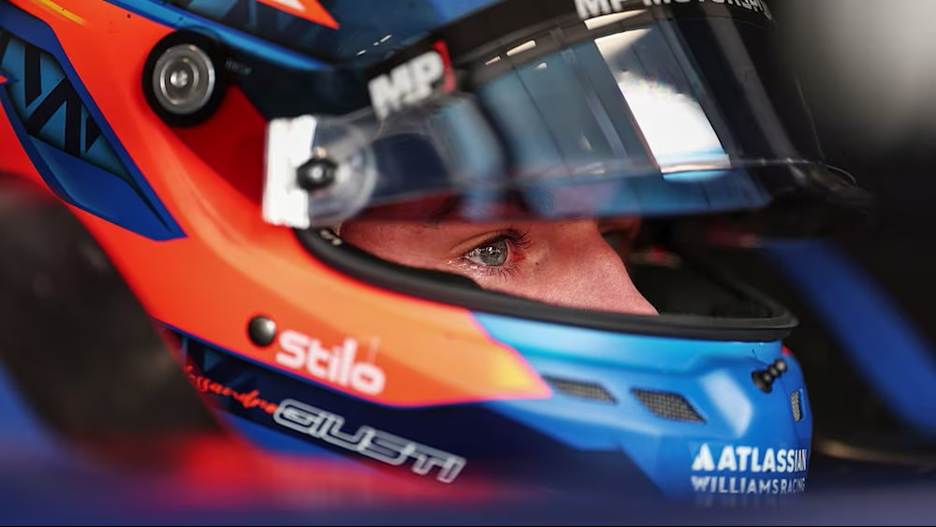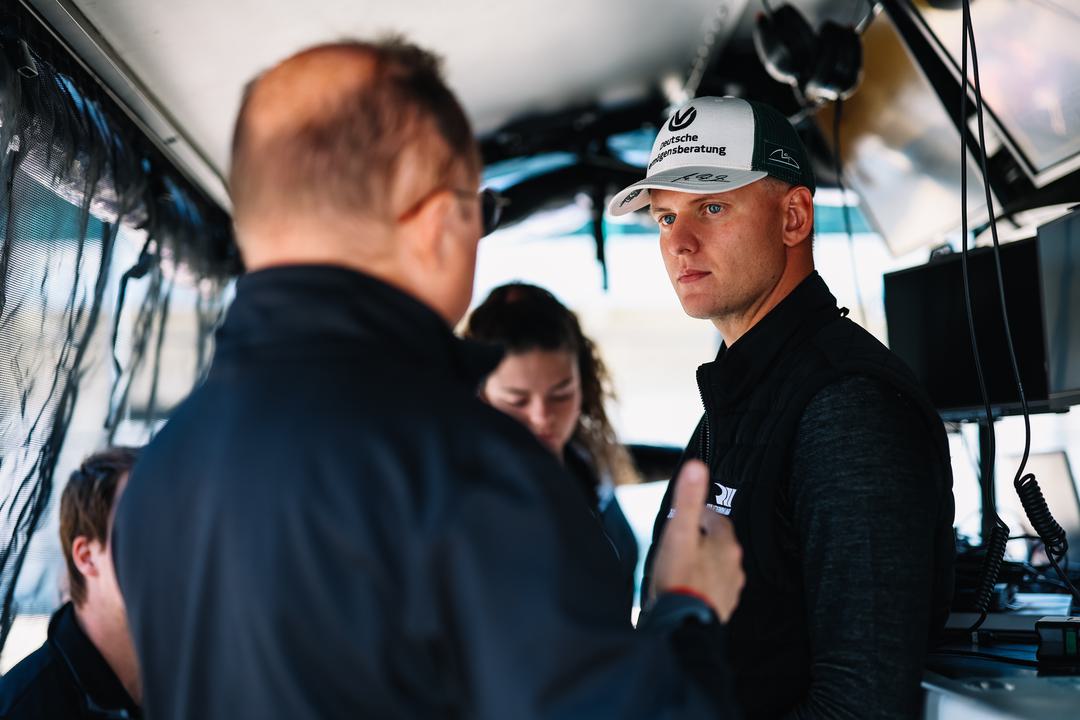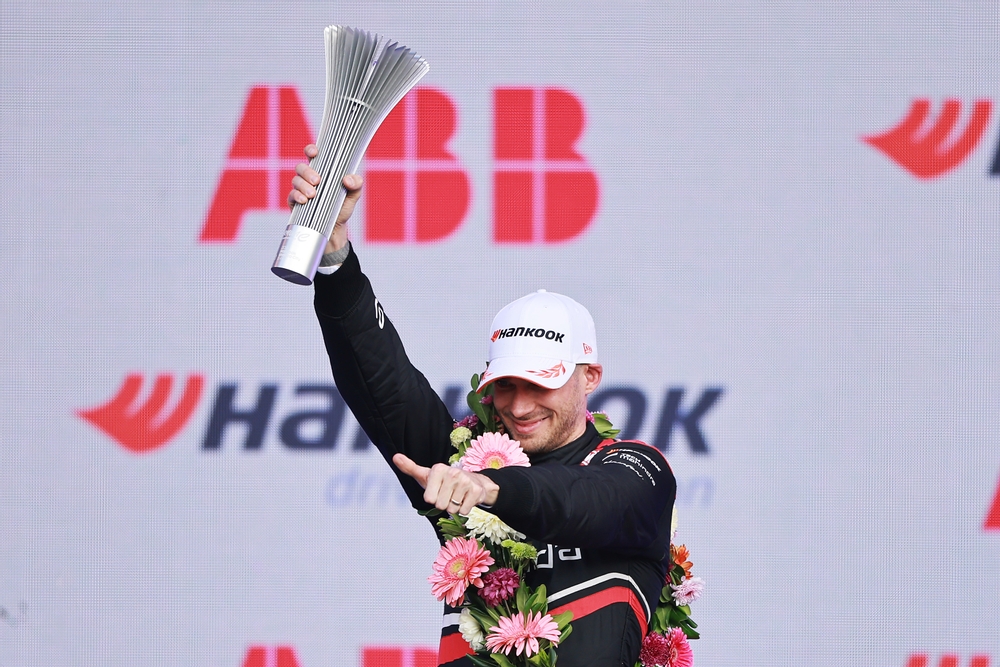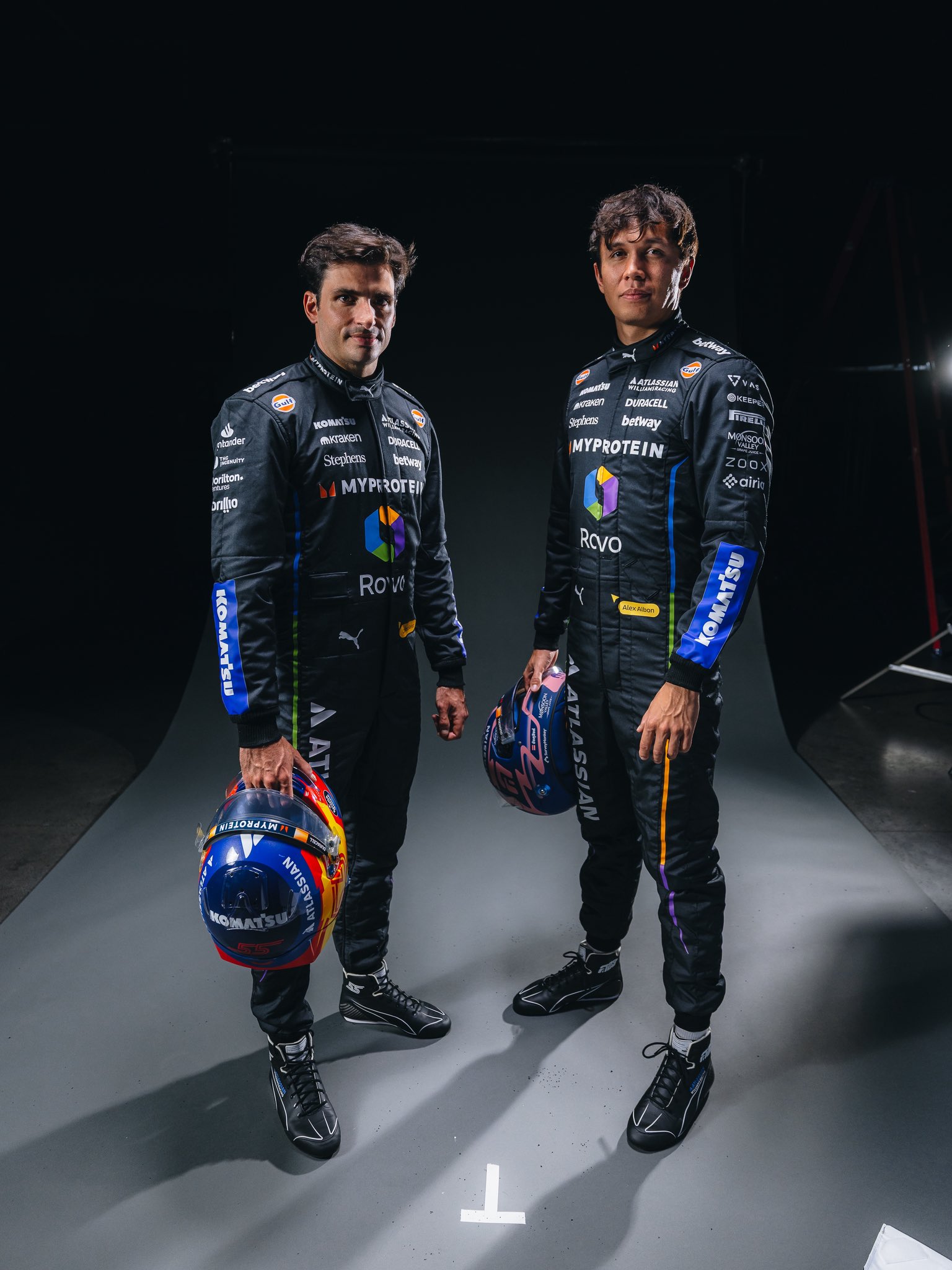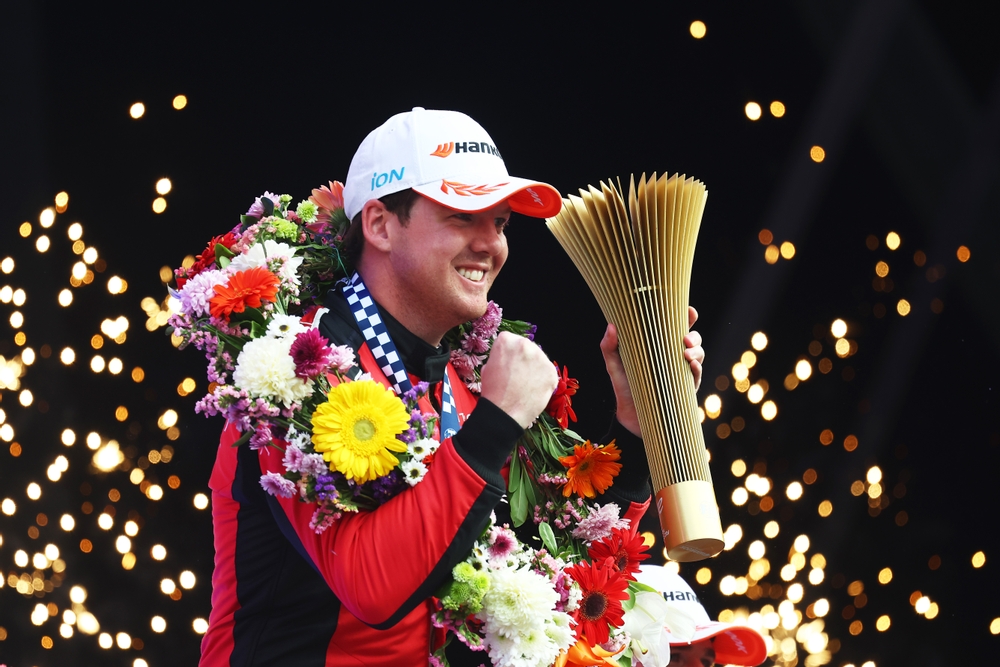Although MP Motorsport and Williams Driver Academy driver, Alessandro Giusti ended the 2025 F3 season tenth in the standings, the Frenchman arrives into 2026 with a sharper mindset and a more defined sense of what is required to fight at the front. His rookie year often showed glimpses of speed and resilience, yet inconsistency in qualifying kept him from delivering the results that his race pace suggested were possible. The lessons were sometimes harsh, but he insists they have positioned him well for the challenge ahead.
Now returning for a second season with MP Motorsport—a team he already views as a natural home—Giusti is determined to transform solid foundations into a genuine title push. With continuity in personnel, deeper familiarity with his machinery and renewed belief in his own progress, he sees 2026 not as a rebuild, but as a launch point.
Comfort and familiarity reinforce Giusti’s commitment
Giusti emphasised how important MP Motorsport’s environment has been in shaping his confidence. For a young driver entering one of the most competitive championships in junior motorsport, stability can be a crucial performance multiplier.
Reflecting on his decision to stay, he explained: “Firstly, I am comfortable with the team, they are like a family to me. I’m happy to be here, and to stay for a second year.”
That sense of belonging matters even more when the margins for improvement are narrow. Giusti believes MP possesses a strong platform already, and that further development over the winter break could unlock the competitiveness they occasionally showed but rarely sustained.
“The car is fast, and we will try to improve it over the winter, so that we can fight for the title next year.”
His good relationship with the team extends directly to the engineers who guide him across every session. With a shared language and a full year of collaboration behind them, communication has become seamless—a key asset for a campaign where every tenth can redefine a weekend.
Giusti highlighted this harmony, saying: “I think to do a second year with a team you already know is quite good for confidence. To know the people around you is good. I have a very good relationship with Antoine, the engineers are all French, so it’s good for me. It’s important to have a good relationship with the team, especially in the second year when we need to fight for the top places.”
Assessing 2025: A year of promise, frustration and crucial learning
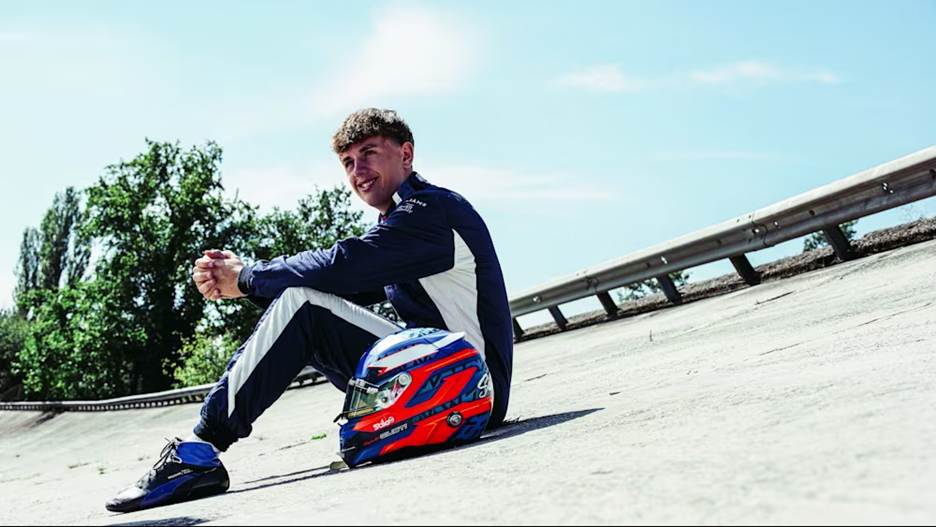
Although Giusti enters 2026 with optimism, he remains realistic about the inconsistencies that defined his first season. His opening year in F3 offered strong performances but also highlighted areas that required refinement.
Summarising the year, he admitted: “It was a so-so season I would say. It was a bit frustrating because the pace we had on some weekends, we did not convert it into top results, but the pace was positive. It was great, but it was also quite tough because F3 is really tight, and you need to nail quali, which we did not.”
Despite those issues, MP’s early-season race pace frequently allowed him to recover ground. He grew stronger as the season progressed, consistently making up positions on Sundays. Yet he recognises that starting further forward would have dramatically changed his results.
“At the beginning of the season, we were very strong with our race pace, we just needed to qualify higher. It was quite good at the beginning, so we need to work on it for next year. In F3, you only have one push lap, and the one that matters is the last one. You make a mistake and it’s over, you start outside the top 12, which is not good. That’s where it’s so tight.”
His Budapest example remains a vivid demonstration of these fine margins—where positions from third to eighteenth were separated by barely more than a blink.
“For example in Budapest, I was in P9, a tenth from P3 and a tenth ahead of P18. So it’s really tight, and if you make a mistake of a tenth, you are outside of the top 12 and your weekend is very different.”
A career built on consistency and second-year breakthroughs
Despite the absence of a win in 2025—a first in his single-seater career—Giusti remains encouraged by his development. Approaching the higher tiers of motorsport naturally means confronting stronger grids, tighter margins and steeper learning curves.
Assessing where he stands, he explained that “when you get closer to F1, it gets harder and harder. It was great but it was also quite tough because F3 is really tight.”
Zooming out across his career, Giusti remains proud of how he has established himself across each step of the ladder. Even so, he does not shy away from expressing disappointment when expectations were not met—particularly in FRECA the year before.
“I think it has been quite strong. I am a little frustrated with last year though, a season where I felt we could have fought for the title, and we did not.”
His second season in FRECA unfolded with mixed fortune. While the pace eventually came, early struggles and late setbacks compromised his ultimate finishing position. Giusti recalled: “At the beginning of the year we struggled a lot and then we had a bit of bad luck at the end of the year, where we were fast, and we finished P4 in the Championship, three points behind P3. So I was disappointed with my second season in FRECA.”
Even so, his career trend has been consistent—rookie year learning, sophomore year title contention. He hopes that 2026 will follow that familiar pattern.
“I think my career in single seaters has been quite good though, always learning in my first year, having some good podiums, victories and fighting for the title in the second year. This was not the case in FRECA, but hopefully it will be the same next year.”
The influence of Williams Driver Academy
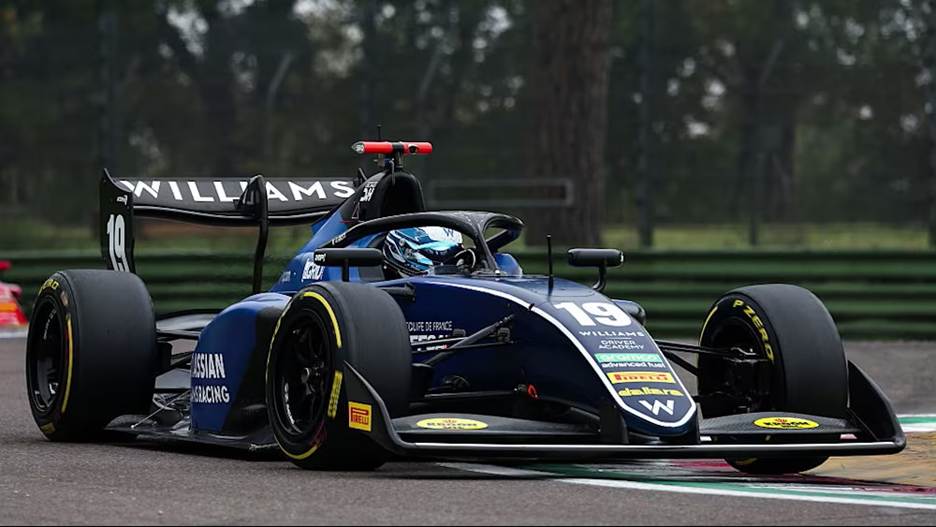
Working within the Williams Driver Academy gives Giusti an extra layer of support as he develops. The programme connects him with experienced engineers and fellow drivers like Luke Browning and Victor Martins, both currently competing in the 2025 FIA Formula 2 Championship, who offer guidance on racecraft, preparation and managing pressure.
Speaking about those relationships, he explained: “I have a good relationship with both. Luke, I have known since joining Williams, he is a good guy. Victor, I’ve known him for a long time, I think since 2017. His brother was my mechanic in go kart, in real competitions he was my mechanic, so that’s where I met him. He is French so that helps, but I have a good relationship with both.”
A clear objective: Convert strong race pace into strong weekends
Looking ahead to 2026, Giusti identifies his priorities with precision. Race pace has already proven to be a strength, and he expects it to remain a key weapon. Beyond outright speed, he also highlights improvements in execution—managing starts, sustaining rhythm under pressure and defending against counter-attacks. Those elements helped him become one of the more effective movers on Sundays.
“I think the positive is that we are strong in pace, race pace especially. I know how to manage the car, the starts, how to deal with attacking and defending, it’s been quite strong all year.”
Ultimately, though, he knows that Qualifying will dictate how far he can rise. To turn progress into podiums—and podiums into wins—he knows he must consistently start inside the top ten. He set that target clearly, saying: “I always move up in the races, so it has been quite strong. So I just need to qualify in the top 10 at every round, it’s important, so that’s the big thing for next year.”

